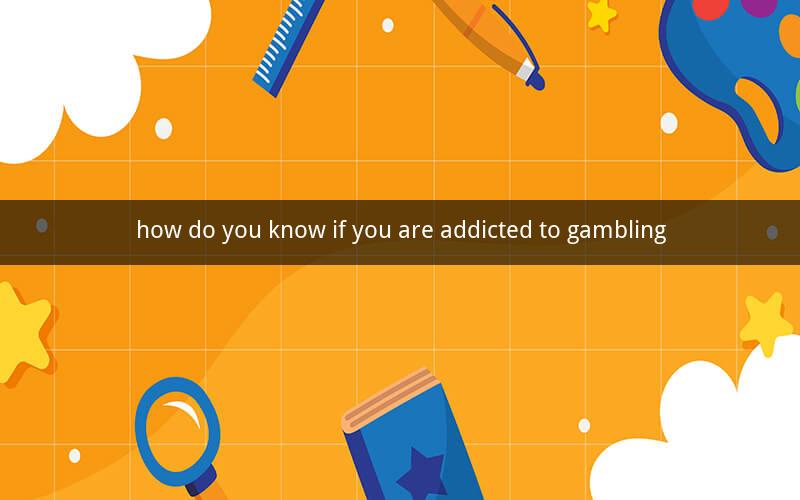
Contents
1. Understanding Gambling Addiction
2. Signs of Problem Gambling
3. Psychological Effects of Gambling Addiction
4. Financial Consequences of Gambling Addiction
5. Social and Family Implications
6. Treatment and Support for Gambling Addiction
7. Prevention and Awareness
8. Legal and Ethical Considerations
9. Case Studies and Personal Stories
10. Conclusion
1. Understanding Gambling Addiction
Gambling addiction, also known as problem gambling, is a behavioral disorder characterized by an uncontrollable urge to gamble despite negative consequences. It is a complex issue that affects individuals from all walks of life, regardless of age, gender, or socioeconomic status. To understand gambling addiction, it is crucial to recognize its underlying causes and risk factors.
2. Signs of Problem Gambling
Identifying the signs of problem gambling is the first step towards seeking help. Common signs include:
- Inability to control gambling behavior
- Feeling restless or irritable when not gambling
- Needing to gamble with increasing amounts of money to achieve the desired excitement
- Repeated unsuccessful efforts to stop, control, or reduce gambling
- Risking or losing a substantial amount of money, time, or other resources
- Lying to family, friends, or others to conceal the extent of gambling
- Using gambling as a way to escape problems or negative feelings
- Jeopardizing or losing a significant relationship, job, or educational or career opportunity because of gambling
3. Psychological Effects of Gambling Addiction
Gambling addiction can have profound psychological effects on individuals. These may include:
- Depression and anxiety
- Feelings of guilt, shame, and despair
- Relationship problems and family conflicts
- Suicidal thoughts and behaviors
- Post-traumatic stress disorder (PTSD) due to the trauma of financial and emotional losses
4. Financial Consequences of Gambling Addiction
The financial impact of gambling addiction can be devastating. Some common financial consequences include:
- Accumulating large debts
- Selling personal belongings to fund gambling
- Borrowing money from friends, family, or lenders
- Failing to meet financial obligations, such as rent, mortgage, or bills
- Declining credit scores and creditworthiness
5. Social and Family Implications
Gambling addiction can have significant social and family implications. These may include:
- Strained relationships with family and friends
- Divorce and separation
- Loss of employment and financial stability
- Decreased social activity and isolation
- Emotional and psychological distress for loved ones
6. Treatment and Support for Gambling Addiction
Treatment for gambling addiction may involve various approaches, including:
- Cognitive-behavioral therapy (CBT)
- Contingency management
- Family therapy
- Support groups, such as Gamblers Anonymous
- Medication, in some cases
7. Prevention and Awareness
Preventing gambling addiction involves raising awareness about the risks and consequences of problem gambling. Some prevention strategies include:
- Education and awareness campaigns
- Responsible gambling policies and regulations
- Limiting access to gambling venues
- Promoting healthy lifestyles and alternatives to gambling
8. Legal and Ethical Considerations
Legal and ethical considerations surrounding gambling addiction include:
- Ensuring that gambling venues are licensed and regulated
- Protecting vulnerable populations, such as minors and individuals with gambling problems
- Providing resources and support for individuals affected by gambling addiction
- Addressing the potential for gambling-related crime and corruption
9. Case Studies and Personal Stories
Case studies and personal stories of individuals struggling with gambling addiction can provide valuable insights into the challenges and recovery process. These stories can help others recognize the signs of problem gambling and seek help.
10. Conclusion
Gambling addiction is a serious and complex issue that can have devastating consequences for individuals, families, and communities. Recognizing the signs of problem gambling, seeking help, and promoting prevention and awareness are essential steps towards addressing this pressing concern.
Questions and Answers
1. Question: What are the main risk factors for developing a gambling addiction?
Answer: Risk factors include a family history of gambling problems, mental health issues, personality traits, and exposure to gambling.
2. Question: Can gambling addiction be treated effectively?
Answer: Yes, gambling addiction can be treated effectively with various approaches, including therapy, support groups, and medication.
3. Question: How can I tell if someone I know has a gambling problem?
Answer: Look for signs such as secretive behavior, financial difficulties, and changes in relationships.
4. Question: What are the psychological effects of gambling addiction?
Answer: Psychological effects include depression, anxiety, guilt, and suicidal thoughts.
5. Question: Can gambling addiction lead to legal problems?
Answer: Yes, gambling addiction can lead to legal problems, such as theft, fraud, and embezzlement.
6. Question: How can I help someone who is struggling with a gambling addiction?
Answer: Offer support, encourage them to seek help, and be patient and understanding.
7. Question: Are there any medications available to treat gambling addiction?
Answer: Medications such as naltrexone and topiramate may be prescribed in some cases.
8. Question: Can a person recover from a gambling addiction?
Answer: Yes, recovery from gambling addiction is possible with proper treatment and support.
9. Question: How can I prevent gambling addiction?
Answer: Set limits on gambling, avoid risky situations, and seek support if you feel you may be developing a problem.
10. Question: What is the most effective treatment for gambling addiction?
Answer: The most effective treatment depends on the individual, but a combination of therapy, support groups, and lifestyle changes is often recommended.